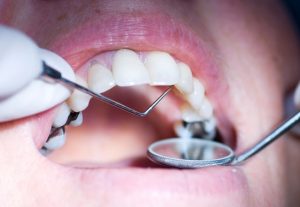Michael Musenga, Executive Director and National Lead Elimination Advisor, Children’s Environmental Health Foundation in Zambia, in this piece appeals to manufacturers to think of the Minamata Convention on Mercury and its Children’s Amendment and voluntarily stop exporting amalgam to Africa. While noting that no country in Africa needs amalgam, he believes the manufacturers can play a considerable role in observing the international treaty

Amalgam is increasingly becoming an issue of environmental justice. In all parts of Africa and in Zambia in particular, we do not need amalgam, because the manufacturers are targeting the poor who still get mercury in their mouths, while the middle-class benefits from the transition going on around the world.
African consumers and African dentists do not need nor want this primitive colonial era, tooth-unfriendly device polluting our environment.
The manufacturers and exporters of this toxic material are giving our governments unnecessary work of controlling the exportation to developing countries. In Zambia, we have kept an eye for this toxic dental amalgam and immediately it comes to our attention we will alert our government because nowhere in our country this toxic product is used for about 22 years now.
The Zambia Dental Association and all dentists do not use dental amalgam and our government is revising the law (Environmental Management Act No 12 of 2011). The people of Africa have the right to life, health, toxic-free environment and, above all, right to information. It is inhuman to export amalgam to Africa.
The Minamata Convention on Mercury is a global treaty that entered into force in August 2017 with the aim of protecting human health and the environment from anthropogenic emissions and releases of mercury compounds.
The new amendment represents a world consensus that amalgam is not safe for children and other vulnerable populations.
It is not safe in their mouths, and it is not safe in their environment because it was found to have serious effects on children’s health and children are the future leaders of the world and for this reason the manufacturers and exporters of amalgam should also protect the health our children by all means.
The United Nations Environment Programme (UNEP) and Indeed the World Health Organisation (WHO) should mark those countries that are allowing the production and export of those toxic materials such as amalgam to Africa.
Africa needs help now from WHO and UNEP in our protection to our health. Mercury is bad as it contaminates our water, rivers and oceans and even fish that we later consume without our knowledge. Mercury can also contaminate plastics that we use in our day-to-day life.
Plastics are usually contaminated with Lead and Mercury and these toxic materials are classified by the WHO that they are one of the 10 chemicals of public health concern requiring urgent attention.
